All the Little Worlds: Reflections on Artistic Direction with Martha Henry, Diana Leblanc, and Marti Maraden – Part 3
In addition to being accomplished actors and directors, Martha Henry, Diana Leblanc, and Marti Maraden have each spent significant portions of their careers as artistic directors. Martha at The Grand in London from 1988-1995, Diana at Théâtre français de Toronto from 1991-1996, and Marti for English Theatre at the National Arts Centre from 1997-2005. None of them considered themselves on a path towards running theatres, but rather in each case they were asked and urged to apply by supportive and encouraging colleagues. The contributions they made to the growth and vitality of their respective institutions are significant. Though Marti’s subsequent time as co-artistic director of the Stratford Festival in 2008 was brief, her leadership can still be seen and felt in the work of the many extraordinary artists she brought with her who continue to work there today. (Martha’s brush with the co-artistic directorship of the Festival in 1980 is so shocking and dramatic that it warrants its own book.) Diana is also a founding member of Soulpepper.
The timing of our conversation, with so much change in leadership happening at so many theatres across the country, made me especially curious to talk with them about their experience as artistic directors.
MARTI MARADEN: I haven’t for a long time looked at statistics that Actors Equity or PACT or anyone has put out recently, but there certainly have been statistics over the years that have talked about what percentage of women run theatres—and then the differentiation between the size of theatre they run as well, which is significant. I think it’s certainly improved over the years. And even way back when, Joy Coghill [at the Vancouver Playhouse] and Jean Roberts, Marigold Charlesworth [both at the Red Barn Theatre and the NAC], there were these women before us who were running theatres. So it’s not that it’s never been, but I think it’s more… it feels more possible. There’s more openness to having women in these positions.
MARTHA HENRY: And not only more openness, but it now feels that that’s almost even a requirement…
MM: Yes.
CHRISTINE HORNE: We’re in a very particular moment right now.
[agreement]
CH: In the last maybe year and a half, it feels like all of a sudden there are a lot of these statistics or studies being talked about, or being made very public, and it can be very shaming, almost. Like which theatres are programming this many plays by women or whatever, and which are not, and… it’s a very particular time right now.
MM: And it’s been good here, here in Stratford. I can’t speak to the Shaw but I know certainly a lot of marvellous women have directed there, and of course Jackie Maxwell, so I think there’s… It’s just interesting that the size of the theatre and the size of the budget is a deciding factor. Stratford has yet to have a woman lead the theatre in a solo fashion. And that day will come, I have no doubt. I am interested by all the different musical chairs going on in the country right now.
MARTHA HENRY: Yes they all seem to happen kind of at the same time, don’t they.
MM/DIANA LEBLANC: Yes.
MH: That artistic directors leave in shifts.
MM: [laughing] I know.
MH: And then it settles down for a while.
CH: And you can almost feel it if it’s a straight white man, you can kind of feel everybody go, “Oh.”
[agreement]

From left to right: Diana Leblanc and Martha Henry. Photo by Mike McPhaden.
CH: “Oh, they went there again.” And of course some of those straight white male appointments are still very exciting and deserving and lead to artistic change in other ways, so I’m generalizing, but we’re all sort of expecting now for there to be something—
MM: Something.
CH: —new.
MM: Or diversity, too.
CH: In any way, yeah.
MM: Not just women. Obviously, you want somebody supremely wonderful to run a theatre, first and foremost, that’s the requirement. But you very much hope that women and people of colour are under consideration for these posts.
MH: But it’s boards. Boards control theatres.
MM: Well, there you are.
MH: Often not very well. And they don’t have to answer to anyone. Not even the Canada Council, and this just drives me crazy. There should be some standard, or something, that boards should have to answer to, it seems to me.
MM: That’s an excellent point, yes.
MH: It doesn’t happen.
DL: Don’t you think there are some theatres where the artistic director and the board are in good balance?
MM: Probably.
MH: Yes.
MM: The NAC, ultimately, was. But it has an unusual structure and the artistic heads answer only to the president/CEO, who deals directly with the national board. I do want to mention that I owe a debt of gratitude first to John Cripton who in his brief tenure as CEO brought me to the NAC, and then to his successor Peter Herrndorf. Peter showed me utter faith and respect, and greatly promoted and was extraordinarily supportive of women on the NAC staff.
MH: Now, why did you leave the NAC?
MM: I left because one day I sat down and thought in eight-plus years I think I had two weeks where I wasn’t in touch with anyone on the staff.
DL: God.
MM: That doesn’t mean I didn’t have holidays or go away, I did, but I brought my work with me and I was always accessible. And I remember thinking I’d climbed the mountain as high as I could go. I had certain things I’d hoped to accomplish and did, and I realised there were others that I didn’t have the wherewithal or the ability to achieve. And I also could sense a burnout. I really loved being in a rehearsal hall, so I think I was missing that being the bulk of what I did, as opposed to all the other parts. Which I enjoyed, surprisingly.
DL: Really, you did enjoy those aspects?
MM: I liked working with the people I was working with. I liked working with production, I liked planning the season. And I liked doing the outreach, I liked doing the adjunct things I did, you know, new play development or… I was with good people.
CH: So how do you, with planning your seasons and being able to still be in a rehearsal hall… How do you manage to run the theatre and still be an artist at the same time? When you’re looking at your season, are you thinking, “I want to direct this play, so how do I protect the director, while still being the artistic director?” Is that sort of a thing that you’re able to manage at all? Or do you have to just prioritize the theatre?
MH: Well, I think you do both.
[agreement]
DL: Yeah, it’s a balance.
MH: And certainly when you’re devising a season, obviously there are plays that are in there because you want to direct them. But not only that, they’re there because you think they’ll make a good balance with everything else. Or they’re plays that you want to do for certain actors, or they’re plays that you think it’s time London saw, for example, or… there are all kinds of reasons, but you try to make a balance.
When I met with them in Stratford in August 2018, Martha was in the middle of her run as Prospero in The Tempest, Diana was in town to teach, and Marti was home briefly between directing jobs. There was literally one day out of the whole summer that I could get the four of us in the same place at the same time. And it is a day that I’ll remember for the rest of my life. The generosity and candour they showed to me—a mere fraction of which I’ve been able to write about here—was humbling and inspiring. It was a true honour to sit amongst them, listen, and learn. And while I was busy being awestruck by the three of them and their remarkable careers, they expressed their amazement at the industriousness, intelligence, and integrity of younger theatre artists coming up in the business today.

From left to right: Christine Horne and Marti Maraden. Photo by Mike McPhaden.
MM: I was talking to somebody the other day and said, “Did you ever feel that moment when you were the person being mentored?” When I could persuade Martha Henry to work on a scene with me or something. And then there’s a moment where you suddenly think, “That’s me now! I’m that person.”
DL: Yes!
MM: It’s really quite extraordinary.
CH: [To DL] When we were doing Vimy at Soulpepper, Richard Clarkin—they were doing the VideoCab shows at the same time—he said something about me being “a senior company member” in Vimy. And I was kind of shocked but thought, “Yeah! Yeah, I am! Because everybody else is like 22!”
MM: [laughs]
DL: That’s true!
CH: I’m the old one!
[laughter]
CH: When did I become the old one?? But, yeah, I’m there with my baby and like… yes, I’m the old one.
MM: Wait until you get hit with “veteran.”
[laughter]
MH: “Stalwart.”
MM: [laughs] Stalwart!

From left to right: Martha Henry, Marti Maraden, Diana Leblanc, and Christine Horne. Photo by Mike McPhaden.
In the year and a half since we sat down together, all three have been hard at work. Marti has directed no less than four plays, including The Miracle Worker and Twelve Angry Men for Drayton Entertainment. She’ll soon be directing A Few Good Men, On Golden Pond, and Driving Miss Daisy, also for Drayton. Martha directed Shakespeare’s Henry VIII for Stratford’s 2019 season and is starring in Marjorie Prime at Coal Mine Theatre in Toronto this winter. Also upcoming, Diana will be directing Three Tall Women, featuring Martha, as part of Stratford’s 2020 season. Though they each have staggering careers behind them, there is clearly still much more to come. More work, more art, and more evolution and growth. Stalwart, indeed.


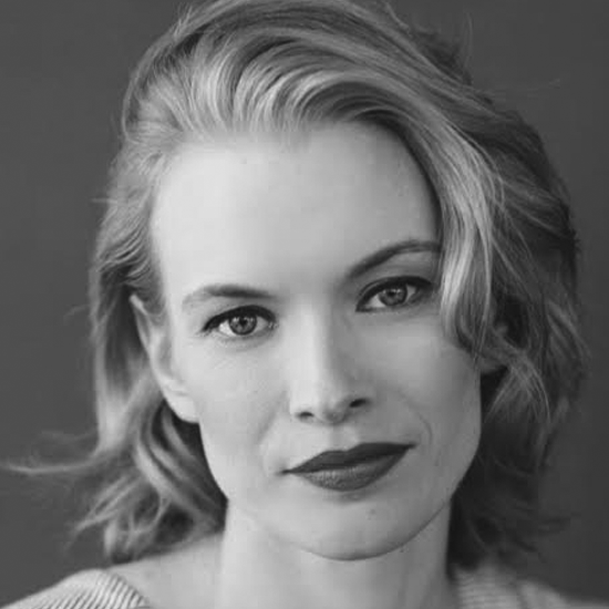
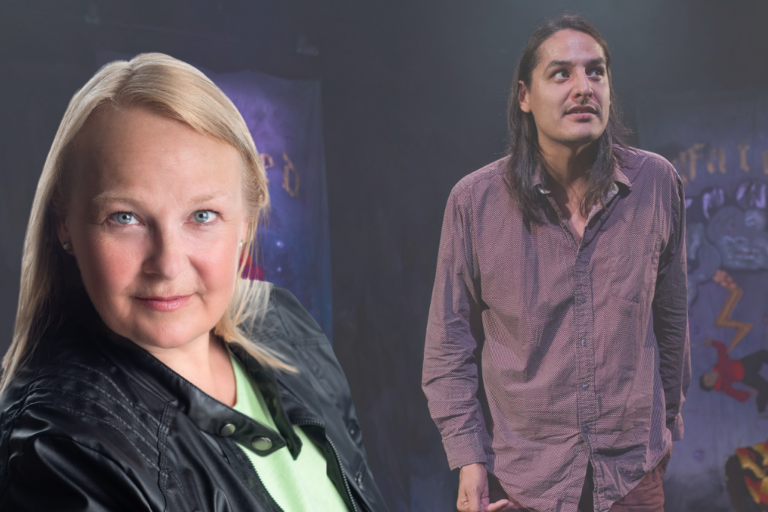

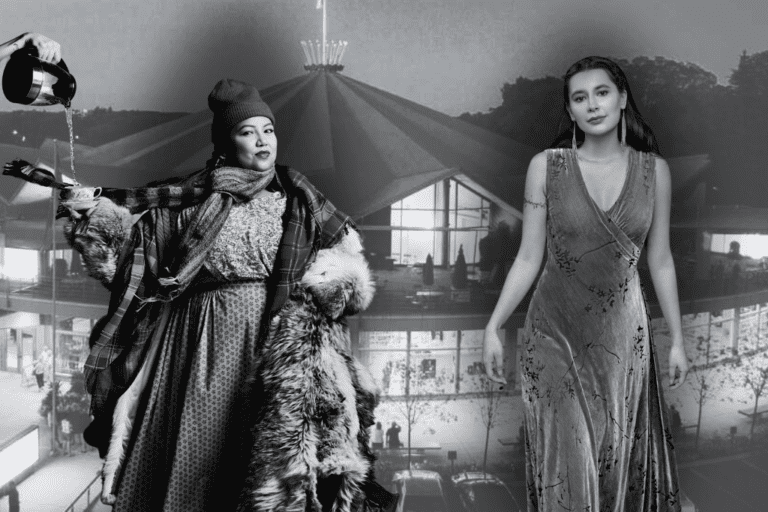

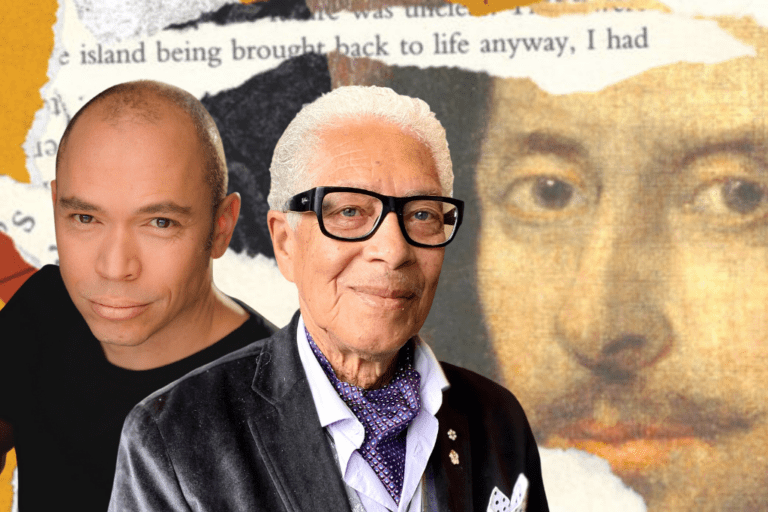

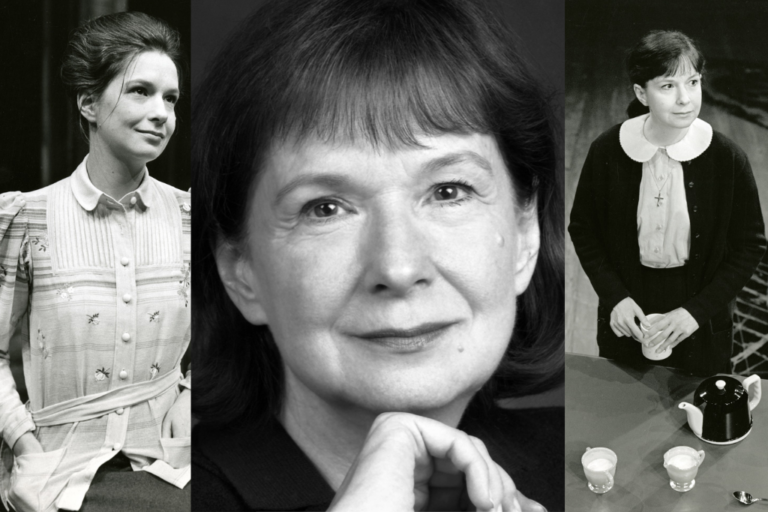
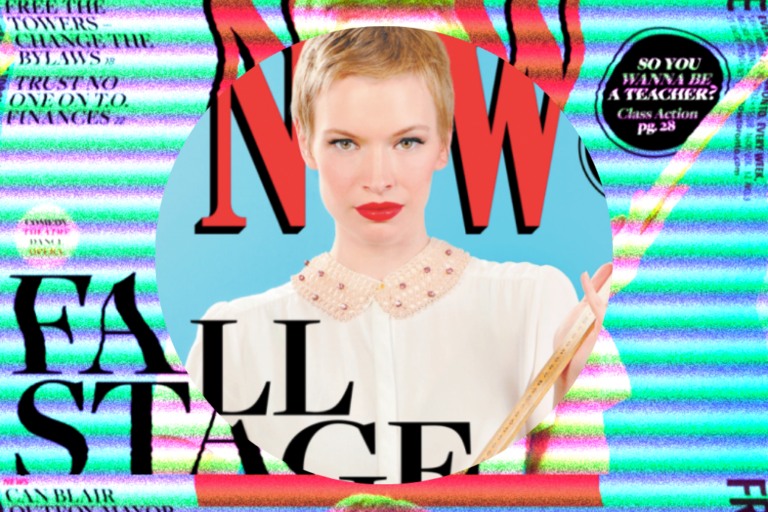



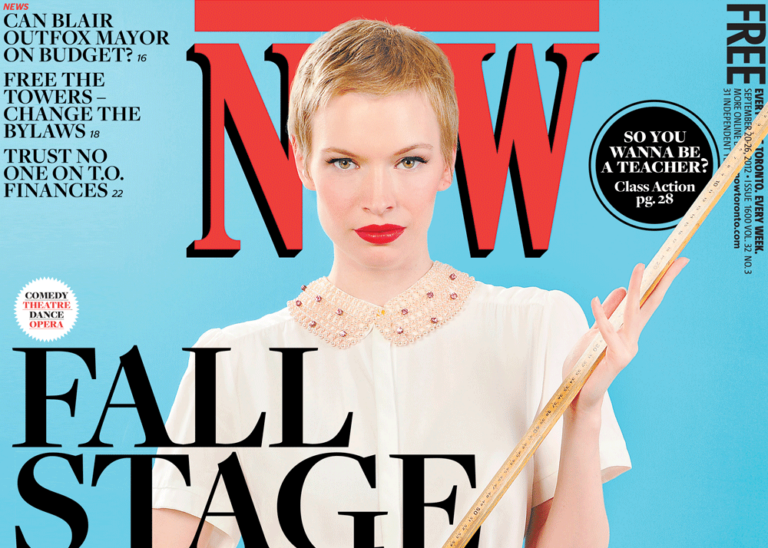
Comments